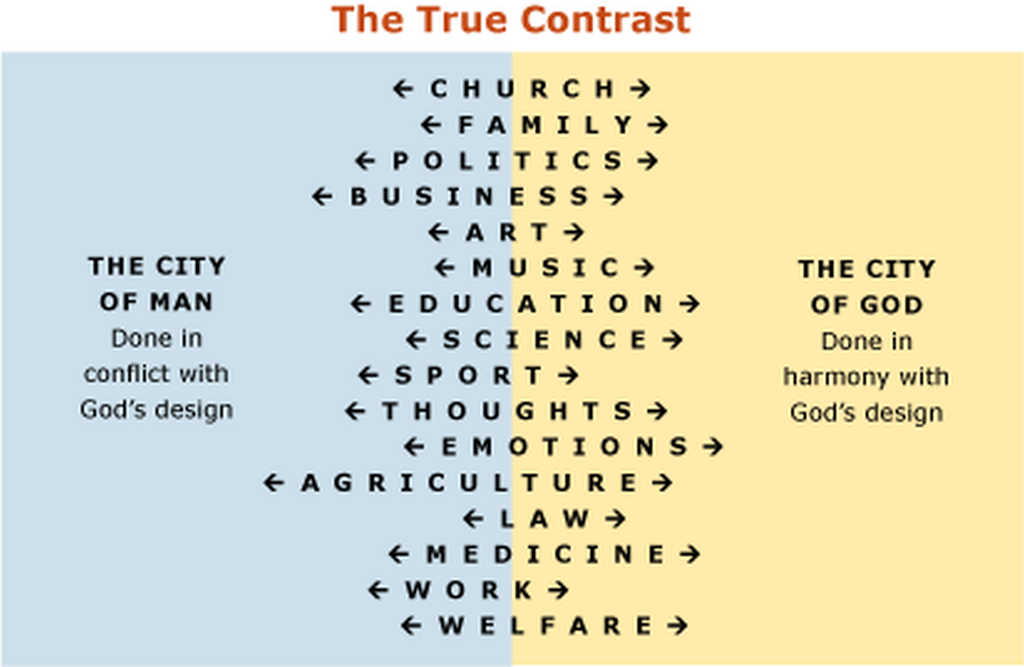Last week, I summarised the first part of the first talk Andrew Fellows gave at the Transforming the Mind Christian Postgraduate Conference in June. We saw that our calling as Christian scholars is rooted in the creation mandate and the mission mandate. But how are the two mandates related?

Richard Niebuhr, in his influential book Christ and culture, lists a number of ways in which the two mandates can be related to each other:
Christ against culture: Christians can separate themselves from the surrounding culture and create a ghetto, a new Christian culture that has nothing in common with the dominant culture. The drawback of this is that it impoverishes the Christian mind.
Christ of culture: trying to be relevant, to fit in. This results in the loss of distinctiveness of the Christian mind.
Christ above culture: culture is seen as valuable only as far as it engages with the ‘supernatural’. This entails a devaluation of other cultural expressions.
Christ and culture: this idea is currently experiencing something of a revival in the ‘two kingdoms’ idea: that God has an earthly kingdom of law as well as a heavenly kingdom of grace. This leads to dualism.
Christ transforms culture: all of life can be spiritual, because grace touches all of creation. Christ’s work as Redeemer is related to His work as Creator, and this is seen in the transformation that occurs when redemption touches our life: we see a new creation (2 Cor. 5:17). This means that academic work also can be spiritual. As Christian scholars, therefore, we are committed to be transformers of culture, and especially transformers of thought patterns (Rom. 12:1-2).
Thanks to Brian Watts at the King’s Community Church
The evangelical church is still often committed to model 4, also known as the ‘secular vs. sacred’ model. However, this is not the crucial antithesis, indeed it is not an antithesis at all! So how does the kingdom of God relate to cultural institutions? There is an absolute antithesis between the kingdom of light and heaven and the kingdom of darkness and this world: you can only belong to one of these kingdoms. These kingdoms are not geographical, not reducible to a social entity or institution. They are invisible realities that seize the core of an individual’s personality: our heart. The diagram here is based on one in Al Wolters’ classic book Creation Regained.
The Kingdom in Church and Academy
God makes the invisible reality of the kingdom of God visible through incarnation. He did this first and foremost in the person of Jesus Christ, but He continues to do this in the local church. The church is an institution with its own authority, and has the function of promoting the values and truths of the invisible kingdom. Furthermore, incarnation happens where ’two or three are gathered in His name’ (Matt. 18:20). The kingdom can work itself out in many other social entities, movements, structures and networks whose specific aims are kingdom purposes, with an ultimate commitment to the kingdom of Christ. These have real integrity to exist alongside the local church. Their commitment can be worked out in multiple and multifaceted ways. As Christian academics, we manifest Christ’s rule in the academy. In an increasingly secular society, we need to be creative in gathering in communities where two or three gather in His name. Why not seek out other Christian postgrads in your university to meet up with, to further the purposes of His kingdom in your university, in your subject area?
Audio files of Andrew’s talks will be posted soon on the website of Transforming the Mind, and you can find more of his talks on the website of Christian Heritage and the L’Abri ideas library (other resources on these pages also warmly recommended!).
- Evolution and epistemic humility - January 14, 2019
- Jesus, virtue and the university - September 4, 2017
- Welcome to the University of Babylon! - August 21, 2017


